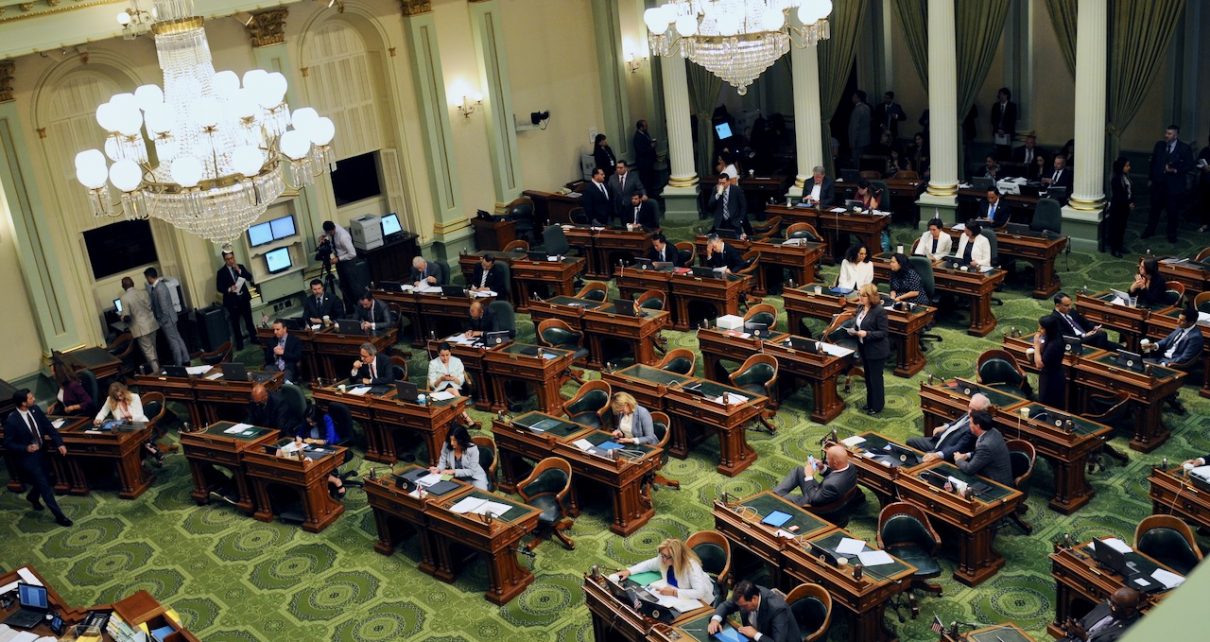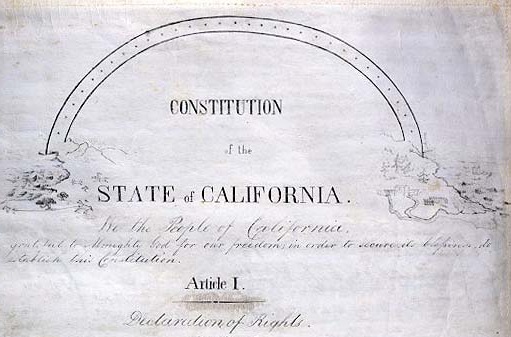
California State Assembly Chamber. (Photo: Kevin Sanders for California Globe)
Expulsion or Suspension of California State Legislators
The state Constitution was amended in 2016 by Prop. 50 to allow suspensions of state legislators
By Chris Micheli, December 29, 2021 5:28 pm
California’s Constitution, in Article IV, Section 5, provides that the Legislature is the judge of its Members and their ability to hold office. Section 5(a)(1) states: “Each house of the Legislature shall judge the qualifications and elections of its Members…”
The courts in this state have repeatedly held that the Legislature is the judge of who is or is not a member of either the Assembly or Senate.
In addition, Section 5 specifies procedures for the expulsion or suspension of the Members of the California Legislature. What is “expulsion?” Basically, it is removal from office and can be done by the legislative body itself to one of its members. California’s Constitution is similar to the federal constitution in this regard.
The U.S. Constitution, in Article I, Section 5, Clause 2, specifies that “Each House may determine the Rules of its proceedings, punish its members for disorderly behavior, and, with the concurrence of two-thirds, expel a member.” Similarly, California’s Constitution provides, “…. and, by rollcall vote entered in the journal, two-thirds of the membership concurring, may expel a Member.”
Moreover, California’s Constitution allows the “suspension” of Members of the Legislature. The state Constitution was amended by the statewide electorate in 2016 by Prop. 50 to allow suspensions of state legislators. Subdivision (2) of Section 5(a) was added to provide for the suspension mechanism.
First, under Section 5(a)(2)(A), either house of the Legislature may suspend a Member. Suspension can be done by a house’s adoption of either a formal motion or by a resolution. The vote must be a minimum of 2/3 in favor and the votes of each Member must be entered in the Assembly or Senate Daily Journal depending on which house is suspending its Member.
Second, the motion or resolution must contain findings and declarations setting forth the basis for the Member’s suspension. Third, the house suspending its Member is authorized to force the suspended Member to forfeit his or her salary and benefits for all or part of the period of the suspension. This forfeiture must be done by an express provision contained in the motion or resolution.
Fourth, a Member who is suspended is prohibited from exercising any of the rights, privileges, duties, or powers of his or her office, or from utilizing any of the resources of the Legislature, during the period that he or she is suspended from office.
Fifth, the suspension of the Member remains in effect until the date specified in the motion or resolution. If a date is not specified in the adopted motion or resolution, then there must be a subsequent motion or resolution with a specified date to terminate the suspension.
Article IV, Section 5 contains additional provisions, such as a ban on honorarium, limitation of gifts, improper compensation, revolving door prohibition, and prohibiting conflicts of interest.
- Definitions for Enforcement of Judgments - February 7, 2026
- Verdicts in Jury Trials - February 6, 2026
- Exchange Services for Supervised Child Visitation - February 6, 2026





Unjust rule… Legislators work for their constituents, not to appease other members. Who came up with that?
AB672 is evidence that this rule should be applied against Cristina Garcia for crimes against the English language, and generally writing stupid legislation proposals…
Couldn’t agree more! Who in the California legislature has the stones to do it? I think Marilyn M. is on to something…although those that elected her may also be a couple of bricks short of a load as well.